Join 40,000+ sales and marketing pros who receive our weekly newsletter.
Get the most relevant, actionable digital sales and marketing insights you need to make smarter decisions faster... all in under five minutes.
Is Google's new coronavirus SERP panel a preview of what's to come? (I hope so)

By Liz Murphy
Apr 22, 2020
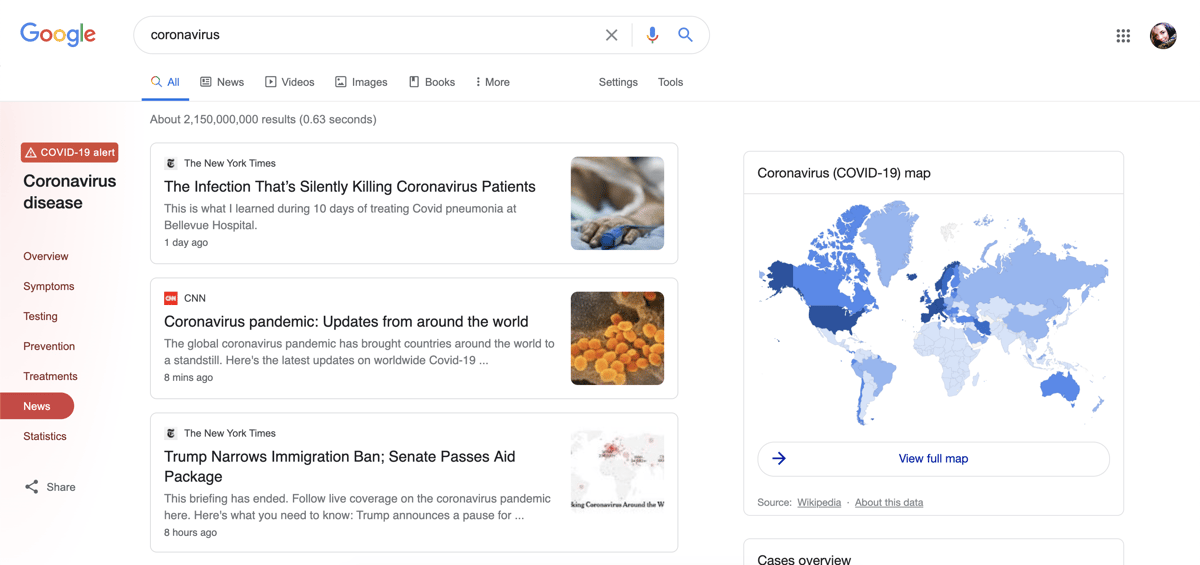
When you're trapped at home 24 hours a day, seven days a week, for 38 straight days (as I write this) — but who's counting, right? — there is only so much you can do to pass the off-work hours during a global pandemic.
So, when I'm done surfing through my usual slate of websites, online magazines, and podcasts for the evening, I'll do a quick check of the latest news and information on coronavirus (COVID-19), since so much changes with it so quickly.
Recently, however, I noticed something positively wild in the Google search results that I had never seen before:
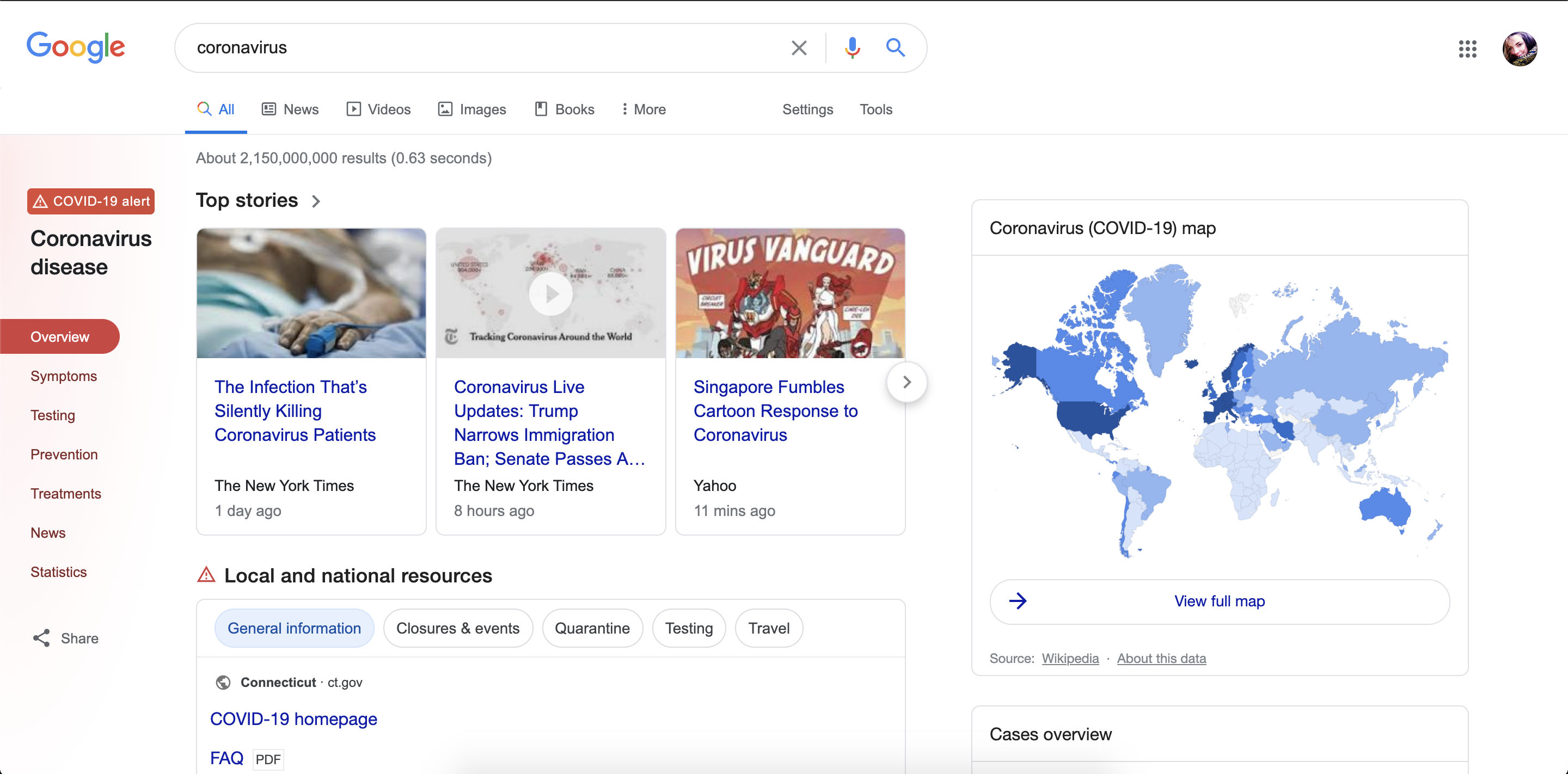
What... is that... on the left?
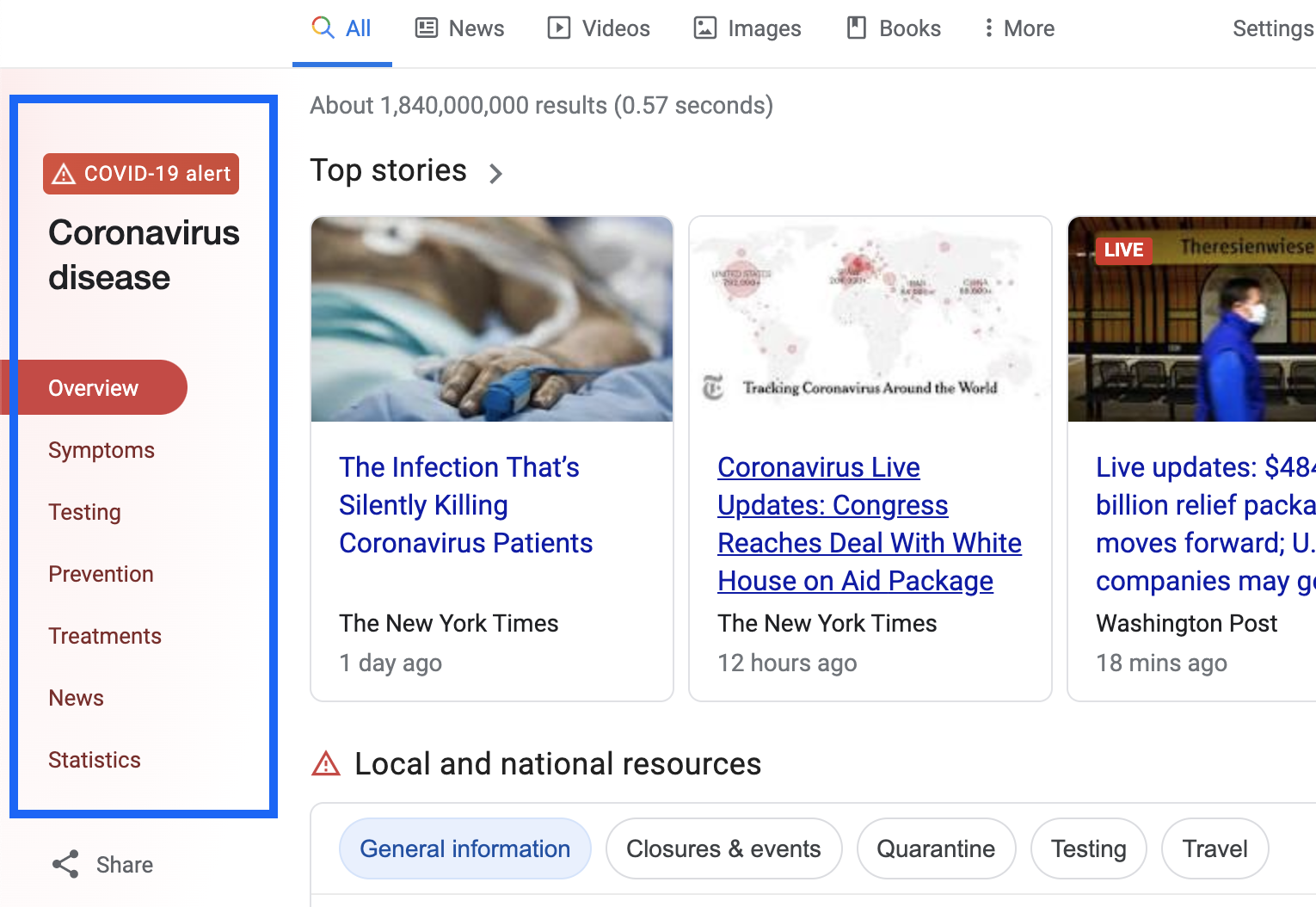
Behold, a fancy-schmancy SERP panel I have never, ever seen before!
Yes, this is a big deal — even Rank Ranger Head of Marketing Mordy Oberstein this innovation is poised to permanently change the face of what the SERP looks like, in a way that gives the search much more control.
But first, a little background to make sure we're all on the same page.
What the heck is a SERP?
SERP is an acronym that simply stands for search engine results page — you know, that little ol' thing all of us digital marketers are trying to claw way to the top of with our content marketing strategies.
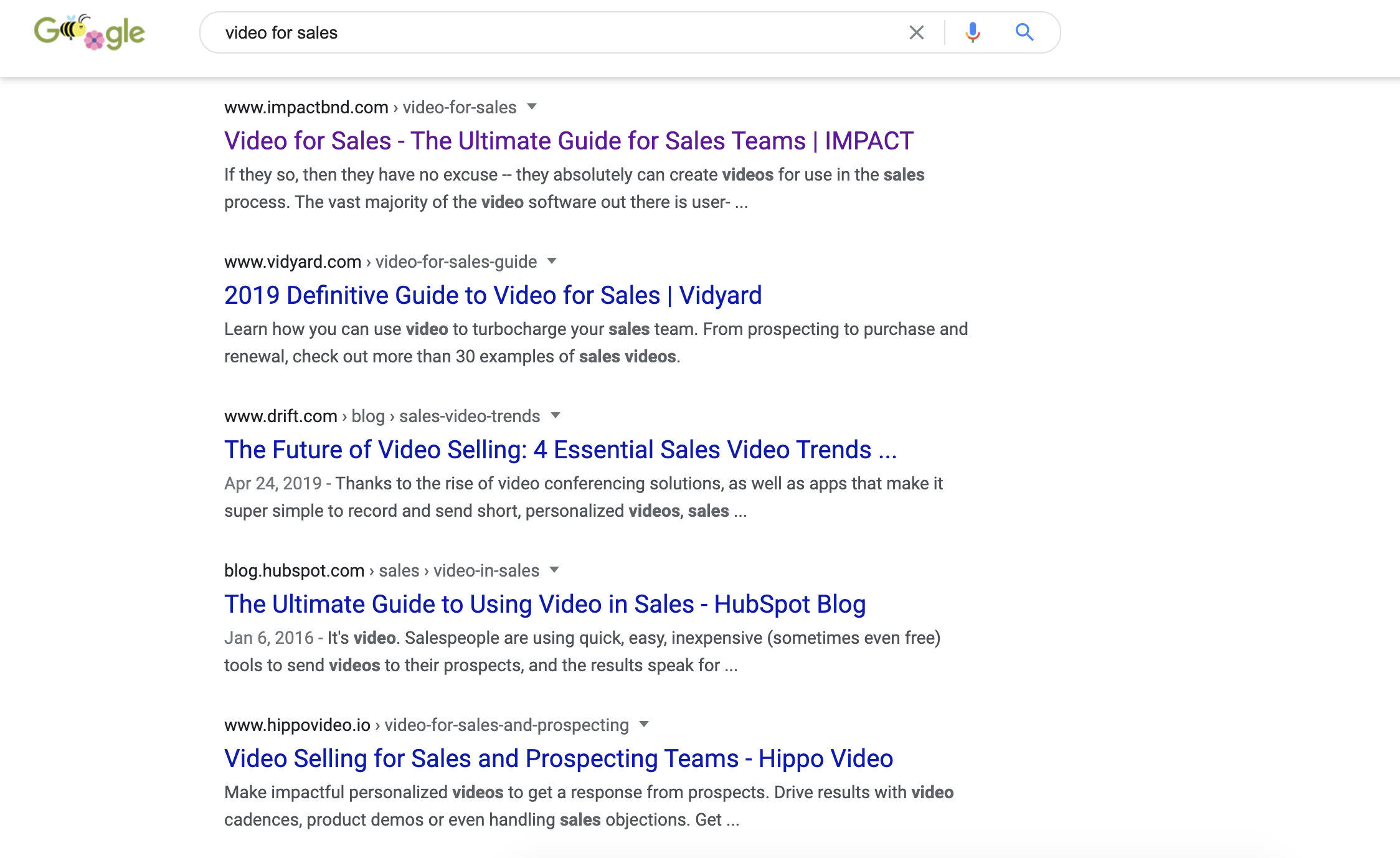
Swoon, I just love seeing our video for sales guide in the #1 spot. 😍
As the years have gone by, what used to be a simple rendering of ranked content has evolved in lots of ways, as Google (and other search engines) have continued to innovate ways to serve up the most relevant answers to search queries faster.
🔎 Related: How to do keyword research (advanced playbook)
More recently, many of the updates people have seen in their search results are designed to keep people on Google by serving up desired answers without someone having to click-through to a different website to get them.
For example, there's the "position zero" featured snippet placement, which is highly sought after by digital marketers, because it often steals the traffic that used to get gobbled up by the #1 search result:
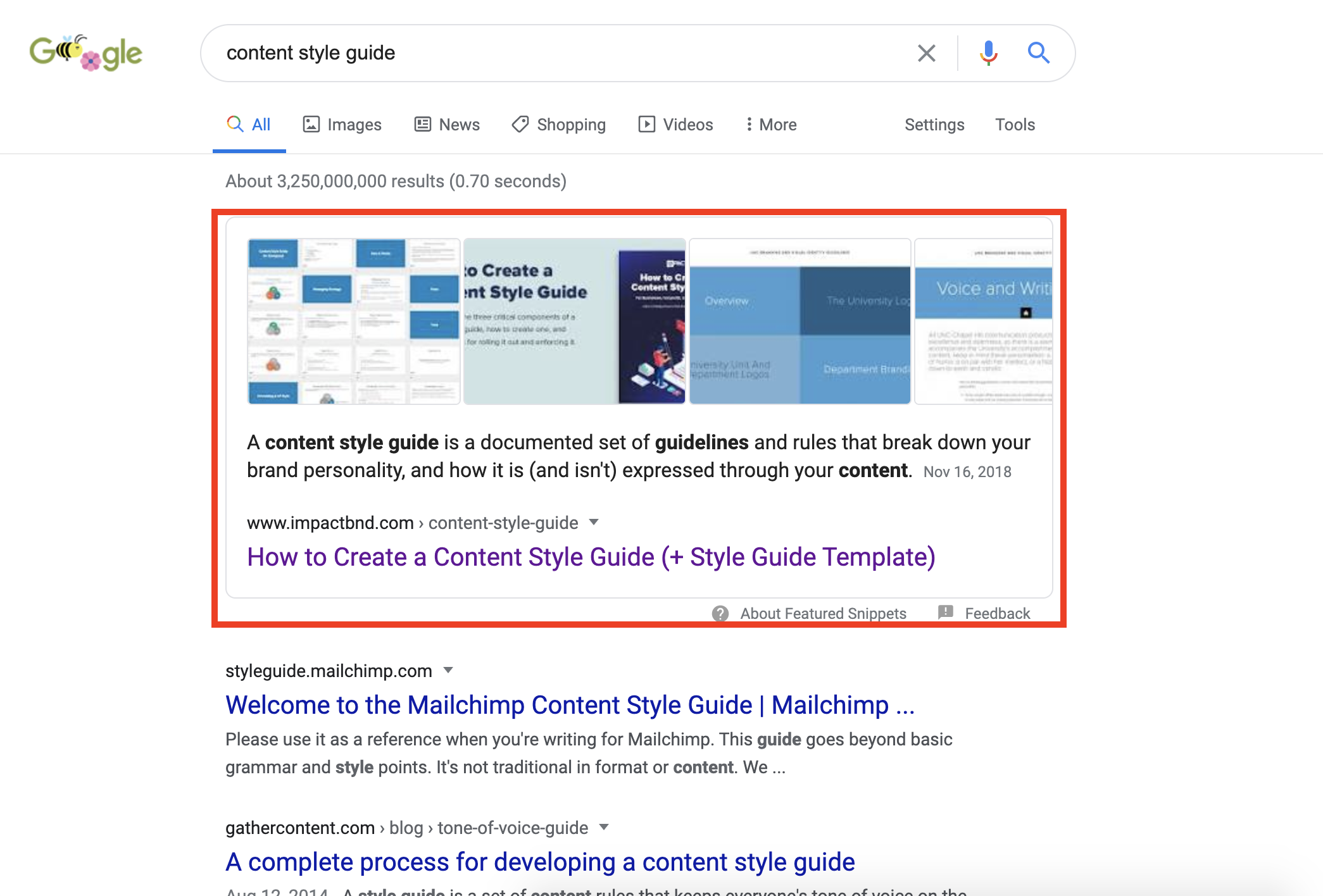
That's our content style guide playbook hanging out in the snippet up there!
Everything you see on a Google SERP, no matter whether you're talking about enhanced features like the featured snippet, the standard serving of organic search results, or the ads fed to the searchers based on their queries, all share one thing in common.
Google is essentially saying in everything that it shows a searcher:
"So, I'm pretty sure this is the specific thing you're looking for." ¯\_(ツ)_/¯
But this fascinating little sidebar, which has risen from the ashes of COVID-19...
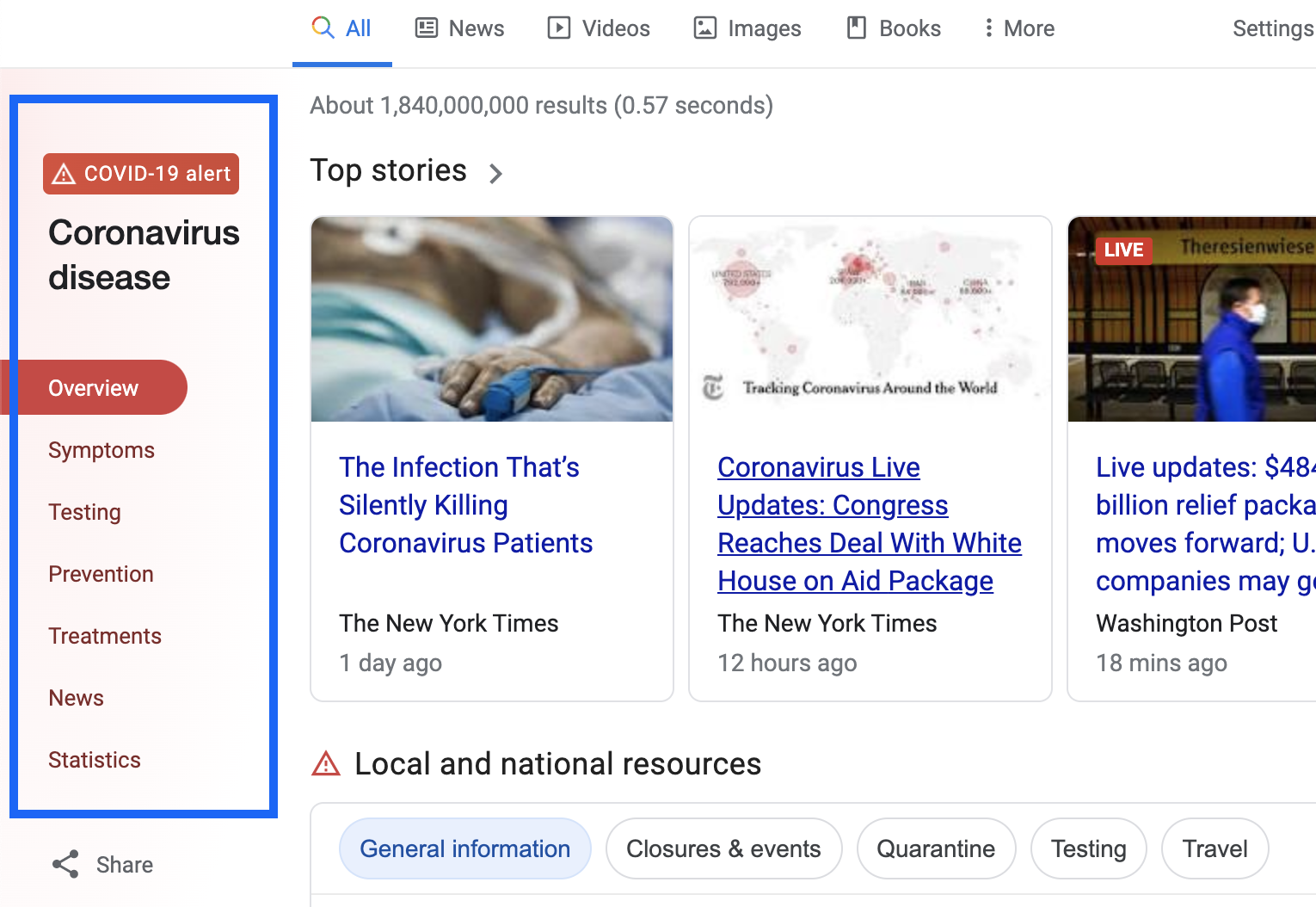
...is an entirely new search experience that has the potential to solve for greater challenges that Google, up to this point, has not been able to overcome.
The new SERP panel allows for on-the-spot personalization of search results
I tested this bad boy out, and it didn't matter what coronavirus topic I threw at Google...
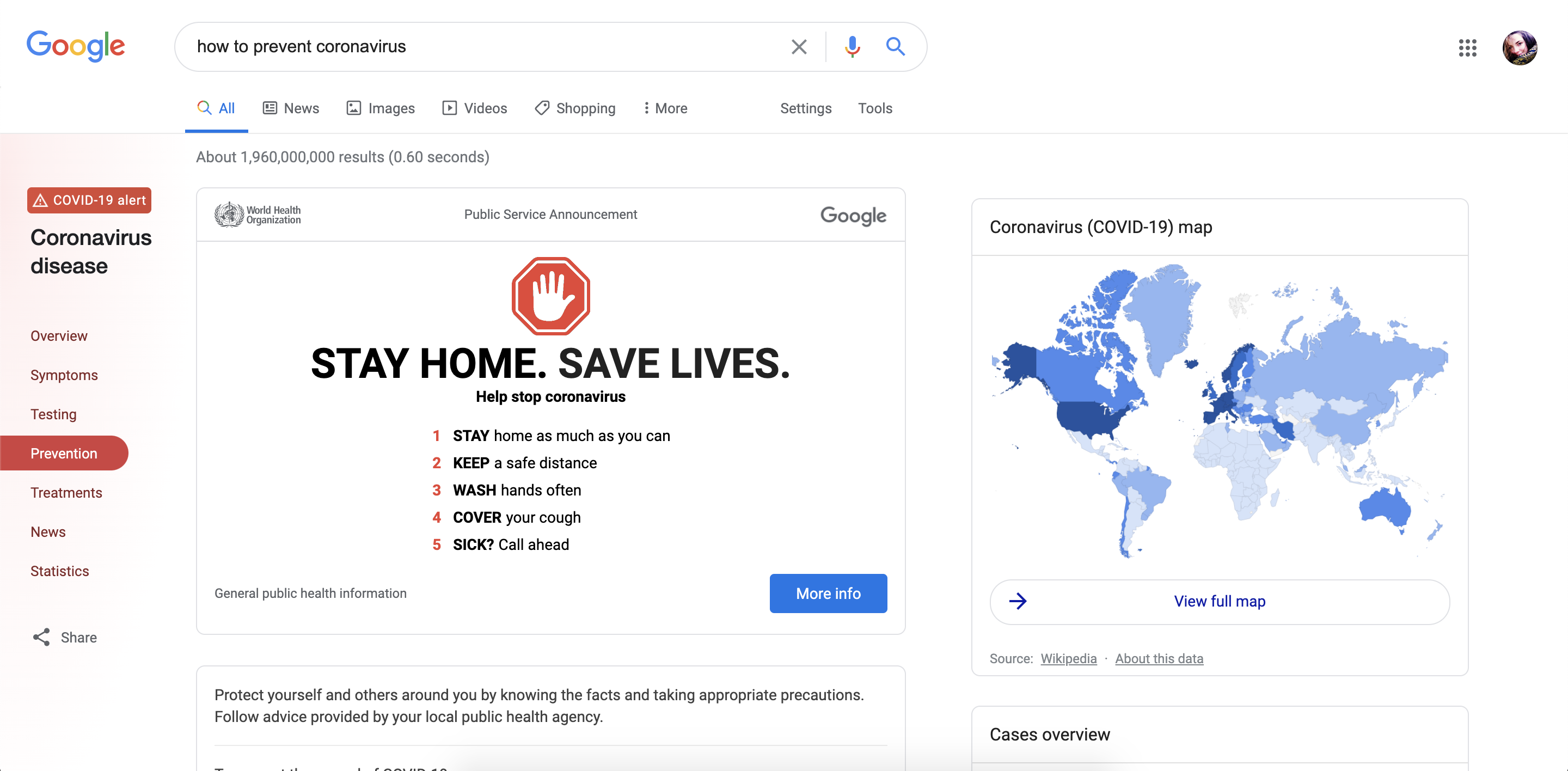
How do I prevent coronavirus?
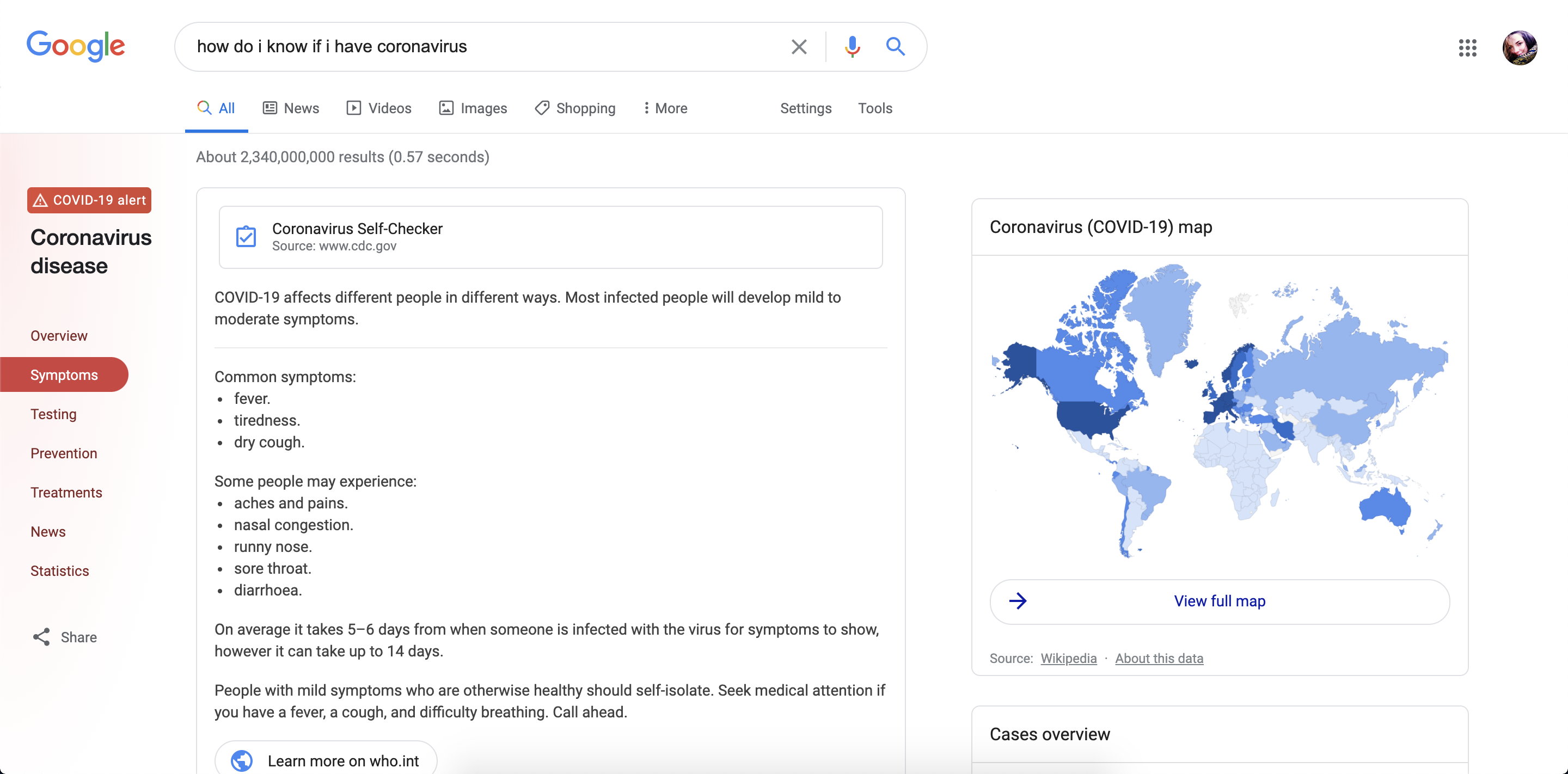
How do I know if I have coronavirus?
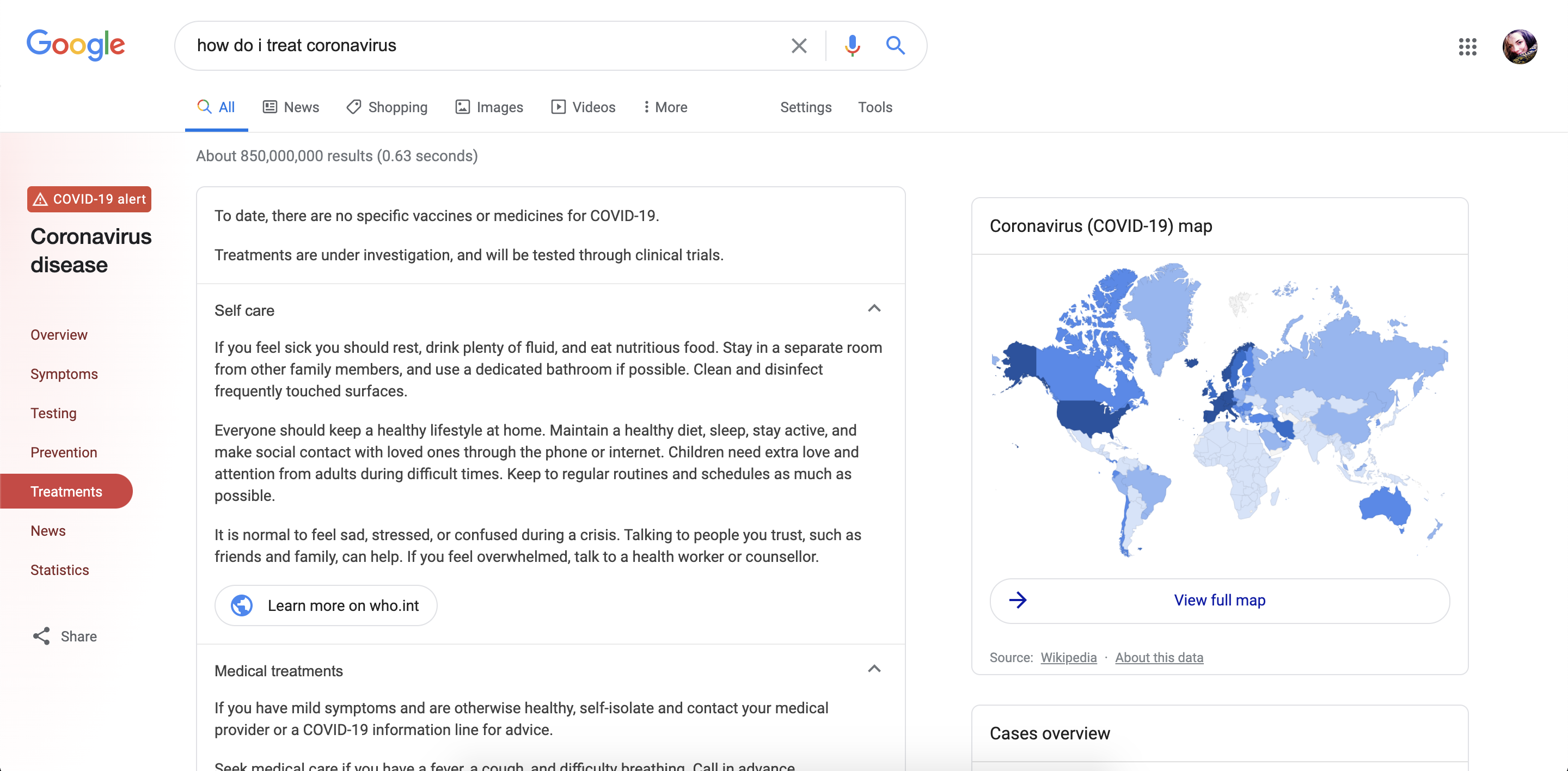
How do I treat coronavirus?
...that little panel was there allowing me to self-select my way around a topic without having to type in additional queries around a given topic.
In the context of a broad topic like coronavirus, where people likely have lots of questions about it, rather than a specific query in mind, this type of tool makes sense. But what are the potential applications for more standard queries outside of a pandemic?
How this search panel could (and should) work outside of coronavirus
Let's pretend for the moment that I'm a business leader entertaining the idea of a website redesign for my company's website.
Were I to type in the phrase "website redesign," Google might go a couple of different ways. I might get checklists or lists of website redesign agencies in my area or broad, sweeping guides on the topic. (What I see here will depend on what my past behavior has been around the topic.)
But imagine a scenario where a little panel on the left-hand side appears with broad categories around the most commonly searched sub-topic areas like agencies, examples, cost, and so on.
As a searcher, I'm more likely to find what it is that I'm looking for with less friction and frustration, which will (in turn) lead me to a result that is much more relevant to the intent behind my initial query. Additionally, I may end up exploring the topic more deeply, as it will surface other sub-topic areas I had not previously considered, opening me up to discover new content I didn't even know I needed.
It also helps solve for Google's annoying "filter bubble" problem
Personalization of results sounds like a great concept on the surface. But just take a look at the heated debates that have risen out of the ashes of the 2016 United States presidential election, all of which centered around one theme:
When you over-curate experiences for users based on preferences, you can unwittingly insulate users within an information bubble that can have disastrous second- and third-order effects.
But this side panel approach from Google has the potential to mitigate (at least in part) this complex issue, according to Oberstein:
In such a scenario, Google would not have to directly worry about the results on the SERP further confirming a user’s biases. The side menu would allow Google to go full-on personalization. All Google would need to do is supplement the extreme levels of personalization with a broader set of content that would be accessed via the side menu.
Imagine the worst-case filter bubble scenario, political bias. Even if, hypothetically speaking, a search history slanted towards a particular political party produced results that reeked of confirmation bias, it wouldn’t be a problem. Google could counteract that level of personalization by supplementing perspective via, you guessed it, a sticky side menu!
You might have a set of initial results that are slanted towards a given political perspective. However, Google could easily supplement this with a broader look at the topic via the side menu.
I hope we're looking into the future, but we can still learn a lot right now from this move
Of course, what we see on Google today could easily be gone tomorrow.
And while the potential is clear for such a new and innovative way of presenting sub-topics around a broad category of information in search results, I can't tell you with 100% certainty this feature is here to stay. (Although I sincerely hope it is.)
That being said, even though the future of the sidebar SERP feature is unclear, us digital marketers can still learn a lot.
Just think about how we could leverage this type of content sorting in a completely different context for ourselves.
For example, we can potentially organize our own content on our site in a similar manner, so our users can easily navigate through dense, broad topics and surface specific sub-topics in a totally personalized way.
Or, it could be a more visible and intuitive way to present a table of contents for a 15,000-word piece of pillar content — a style of content creation that is specifically intended to be built around one very broad topic, e.g. "website redesign."
Bottom line, when it comes to answering the question:
"How can we best give our own audiences the answers they're looking for?"
...clearly, the possibilities are endless.
Free: Assessment